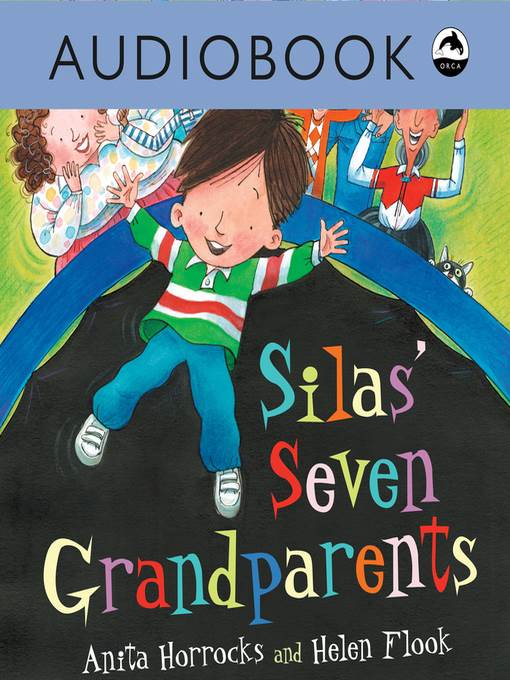
Silas' Seven Grandparents
فرمت کتاب
audiobook
تاریخ انتشار
2017
Lexile Score
560
Reading Level
2-3
ATOS
3.7
Interest Level
K-3(LG)
نویسنده
Christian Downناشر
Orca Book Publishersشابک
9781459817784
کتاب های مرتبط
- اطلاعات
- نقد و بررسی
- دیدگاه کاربران
نقد و بررسی

August 15, 2017
Is there such a thing as too much grandparental love?While the text never explains how Silas, a boy with light skin and brown hair, came to have seven adoring grandparents, have them he does. Nor does the text specify race, but somewhat problematic illustrations indicate that they are a multiracial group of elders. Nana and Oma appear to be white, while Gramma appears black, Opa has light-brown skin (or maybe a tan), Papa's eyes are not dots like the others' but lines, perhaps a stereotypical indication that he is Asian, and Granny and Grandad are visually depicted as Native through what some may regard as stereotypical Western dress embellished with feathers and turquoise and positioning near totem poles. They also gift him a dream catcher and take him "to a pow wow and go fishing and canoeing" while the other grandparents offer gifts and activities absent of such broad cultural significance or stereotype. Although Silas loves them dearly, the seven grandparents' attention can be overwhelming, and when his parents go away he knows he can't take them all up on their offers to stay with them in their respective homes. The solution? They come stay with him at his house and after busy days, he tucks them in to sleep (though why the closing illustration has them sleeping on the porch is a mystery). An intergenerational story with a lot of heart and a few missteps. (Picture book. 3-6)
COPYRIGHT(2017) Kirkus Reviews, ALL RIGHTS RESERVED.

September 1, 2010
K-Gr 2-Silas has seven grandparents and stepgrandparents, all of whom take an active interest in his life. In addition to Nana, he has Gramma and Papa, Oma and Opa, and Granny and Granddad. They go to all of his hockey games and sometimes create quite a crowd. They bake him seven cakes for his birthday, but Silas "has only one stomach," so it's hard to decide which to eat. They invite him to visit and join with them in their favorite activities, be it going to museums, golfing, powwows, or star-gazing. But, when Mom and Dad go on a business trip, how will Silas decide which grandparents to stay with? Suddenly he has a creative solution to solve the problem. Done in acrylic ink, the lively cartoon art is bright and unassuming. The cast of characters is subtly multicultural but their ethnic diversity is presented in a matter-of-fact way. This is a positive story about love and family to share one-on-one with grandparents, no matter how many there are.-Roxanne Burg, Orange County Public Library, CA
Copyright 2010 School Library Journal, LLC Used with permission.

May 15, 2010
Preschool-G An only child, Silas has seven attentive grandparents. Most of the time, he enjoys all that love and support, but not always. For instance, receiving seven birthday presents is great, but eating slices of seven birthday cakes is just too much. When his parents decide to go away for a few days, Silas is invited to stay in all his grandparents homes. He weighs the pleasures of each choice before finding the perfect solution. Making the most of Silas relationships with Oma, Opa, Granny, Grandad, Gramma, Papa, and Nana, the text sets up the story and lays out Silas dilemma in a clear fashion (although kids with the requisite four might wonder how the number got pushed up). The deftly drawn water-based ink illustrations reflect the storys upbeat tone and portray the widely diverse grandparents in ways that make them distinctive. A refreshing alternative to the many overly sentimental picture books about children and their grandparents.(Reprinted with permission of Booklist, copyright 2010, American Library Association.)

























دیدگاه کاربران